ShopBot Tools
Transcription:
TED HALL: One of my missions in life is feeling like if we can bring some manufacturing back to our communities, we'll have brought a lot of value back to our communities. We make tools that empower small businesses and small manufacturing operations. And so, we're really keenly interested in the problem of small business and particularly small manufacturing. This emphasis on getting employees, getting everyone involved in the business, engaging them and thinking about how we develop, how we grow, how we help our customers develop and grow has been pretty important to us. We see that employee ownership can actually play a big role in helping reinforce that kind of engagement. An employee ownership trust, or an EOT, which we frequently refer to it as, is an employee ownership arrangement where all of the shares of the company are owned by a trust for the employees. Employees don't as individuals hold equity in the company, they don't have individual shares in the company, but rather a trust holds all the shares in perpetuity for the benefit of employees.
The idea of that kind of structure is that what you want to do is maximize the likelihood the company continues to operate profitably and attractively within the community that it's grown up in. It's easy to make the case for an employee ownership trust for small businesses, simply because it's so much less administratively involved and so much less expensive and offers so much freedom in how you lay out the nature of the deal and the final arrangement. I think you could ask the question, well, as the company gets bigger and there are more employees involved, maybe you could argue that an ESOP makes more sense. But frankly, I see no reason, everybody should be doing employee ownership trusts rather than ESOPs. They are so well-suited to the 21st century, to the way we're operating, to people's lives, that they make a lot of sense to me.
ShopBot has always promoted the idea of engagement––involvement of employees in the company. We've been profit sharing all along and open books all along. And that meant in our early years that we would discuss the books and how we were doing quarterly. More recently, probably, in the last five or six years, we got involved with a program called the Great Game of Business, that emphasizes using open books and more actively using them, engaging people, such that at ShopBot nowadays, we talk about ShopBot's P&L and how we're doing every week. And employees actually contribute to mapping the data out and discussing it.
ADAM HORTON: Every week as a company we forecast to identify our resources, identify problems before they become a problem and to reach our goal.
DREW HAINS: You know, we're striving to be a very successful company and at its roots, the EOT, it's a profit-sharing model, where if we're ultimately very successful in what we do, day-in, day-out, year-in, year-out, then the employees are going to greatly benefit from that because they'll be more profit-sharing to go along.
JEN NIX: By moving to the employee ownership model, it allowed us to move forward with what the vision for the company is, both the way we function now, as well as the way we want to move forward into the future.
TED HALL: There are four groups really that an EOT, employee ownership trust, serves. First, the employees who really are intended to be the primary beneficiaries. But there is also the community that the business is situated in, there are the customers who the equipment is being produced for, and hope to be able to maintain their tools, and continue using them, and be supported in the way that ShopBot already supports people. Finally, there are the shareholders. Each of these groups can benefit in an EOT and I think we have with EOTs, it’s the opportunity to design, grow a kind of organizational functionality that really serves everyone well. We like to think that we're going to thrive and we're going to grow in the community, bring value to it, and all our employees are going to be outrageously well paid. We hope that's going to happen.
DREW HAINS: We have so many people here that do care about the product, and we've got employees that own ShopBots, and we want to put our best into it because that's how we want to treat our customers, the same way, because we think it's such a great product. And we think that they're going to think it's a great product.
ADAM HORTON: As an EOT, we empower people. We listen to the ideas and we work together as a team.
JEN NIX: On our own we each have our own strengths and weaknesses, but when you put us all together, we are ShopBot. We all feel invested in the business. We all have a stake in the business and becoming an employee ownership trust actually reinforces that more than anything else.
TED HALL: Everybody's kind of grown up with us, you know, they're part of the approach. They're part of the mindset that we have here. And it's very easy for me to be very confident that things will go well, and that ShopBot will be around for a long time helping people make cool stuff.
